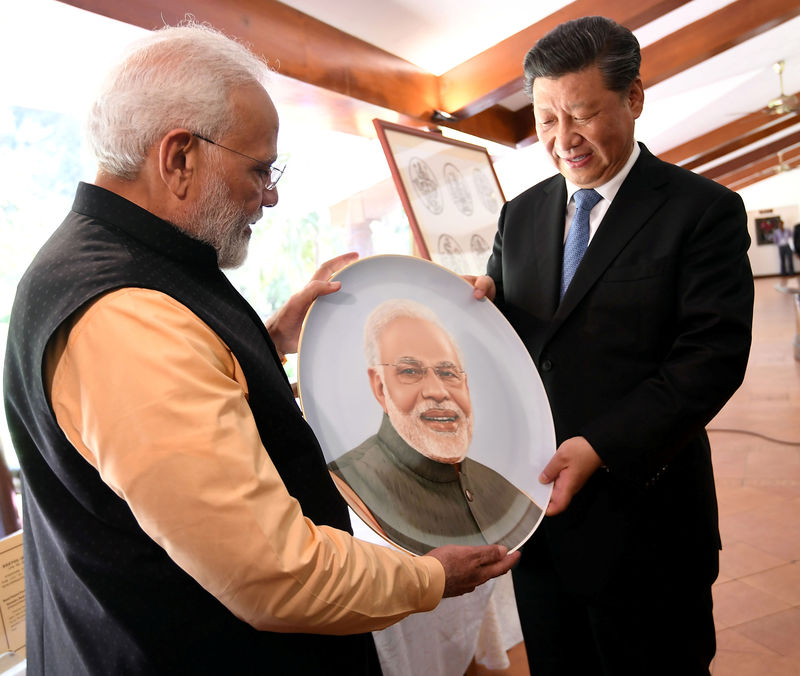By Sanjeev Miglani
MAMALLAPURAM, India, (Reuters) - Chinese President Xi Jinping said on Saturday he had a free and frank discussion with Indian Prime Minister Narendra Modi and would pursue proposals the two leaders discussed to improve bilateral ties.
Xi and Modi held several hours of one-on-one talks in a southern seaside Indian town in their second annual summit designed to break through decades of distrust between their countries over border disputes, a ballooning trade deficit and China's close military ties with India's arch rival, Pakistan.
"Yesterday and today we have engaged in candid discussions and as friends," Xi said in opening remarks as the two leaders sat down for formal talks with their delegations.
"I look forward to further discussions, I may follow up on proposals discussed yesterday," he said, without elaborating.
Ties were ruffled when India revoked the special status of the Himalayan territory of Kashmir in August, angering both Pakistan, which claims the region, and its all-weather ally China.
Modi noted in his opening remarks that he and Xi had agreed to manage their differences prudently and not let them snowball into disputes.
The neighbors are expected to move forward on a set of confidence building measures along their border including border trade, tourism and even joint military patrols to boost trust, officials said.
India and China share a 3,500 km (2,200 mile) border, over which they went to war in 1962. Its course remains unresolved despite more than 20 rounds of talks.
Modi took Xi on a personal tour of temple monuments dating back to the seventh and eighth century at Mamallapuram in southern India when regional leaders had trade ties with Chinese provinces.
India's Foreign Secretary Vijay Gokhale said the two leaders spent nearly five hours discussing bilateral issues that have often been fraught.
The two leaders discussed economic issues, including India's $53 billion trade deficit with China in 2018/19, and ways to tackle it, Gokhale said.
China, for its part, was expected to urge India to take an independent decision on telecom equipment maker Huawei’s bid for India’s proposed 3G network and not be swayed by U.S. pressure. The United States has asked its allies not to use Huawei equipment, which it says China could exploit for spying.
Sources told Reuters in August that China had warned of "reverse sanctions" on Indian firms engaged in business in China should India block Huawei Technologies because of U.S. pressure.
Xi will head to Nepal later on Saturday where he is expected to push for China's further involvement in developing its infrastructure as part of his signature One Belt On Road initiative to boost trade and transport links across Asia.
